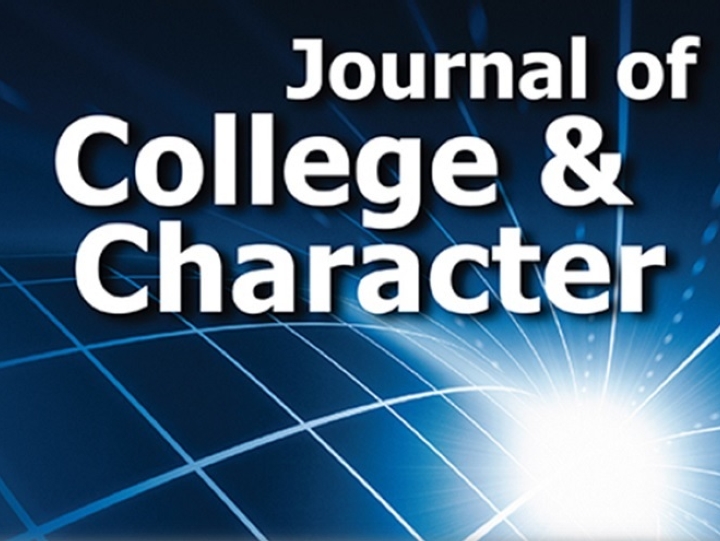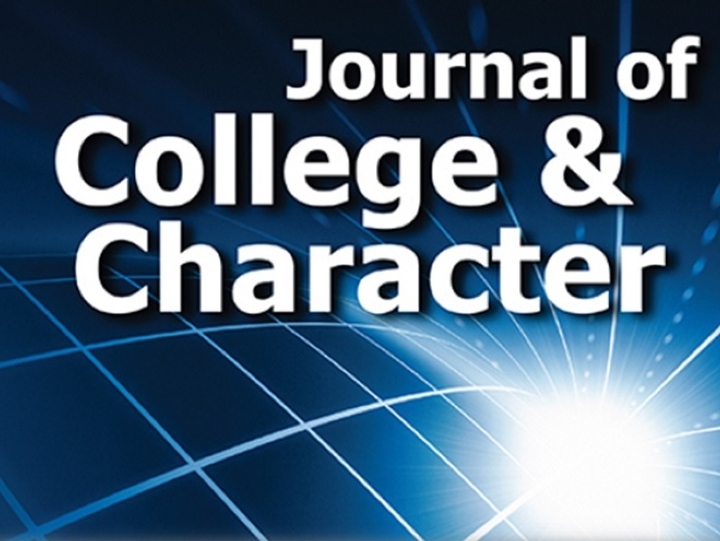
Questions Relating to Moral Development: JCC August 2023
Student Success Career and Workforce Development Equity, Inclusion and Social Justice Civic Learning and Democratic Engagement Equity, Inclusion, and Social Justice Division Health, Safety, and Well-being Initiatives Student Career Development Faculty Graduate Senior Level
August 16, 2023
JCC Connextions, Volume 9, No. 3, August 2023
Here are some important questions relating to moral development that are explored in articles in the August 2023 issue (vol. 24, no. 3) of the Journal of College and Character:
1. How can educators help students to build resiliency in an uncertain world while envisioning their life’s work?
Career Development Is Everyone’s Responsibility: Envisioning Educators as Career Influencers
Michael J. Stebleton & Candy Ho
The authors discuss the value of purpose narratives that students can construct to describe their experiences and help build resiliency during times of uncertainty. The conclusion provides recommendations for post-secondary educators to consider to effectively frame every student conversation as a career conversation. Read the article.
 2. What is the role of university chaplains in assuming relational presence and why is it important?
2. What is the role of university chaplains in assuming relational presence and why is it important?
University Chaplaincy as Relational Presence: Navigating Understandings of Good and Effective Chaplaincy in UK Universities
Kristin Aune, Lucy Peacock, Mathew Guest & Jeremy Law
Chaplains are embedded in the culture and life of many universities and are a key part of university support for religious students. The authors argue that relational presence reflects the UK’s three-dimensional religious landscape, where religion is regarded as “vicarious,” and reflects the values of young people who attend universities. Read the article.
3. How does faculty mentoring influence the life purpose and perceived well-being of first-generation college students?
Mentoring, Life Purpose, and Well-Being in First-Generation College Students: Impact of Life Purpose Mentoring by Faculty
Christina Stratton & Cindy Miller-Perrin
The authors investigated the value of faculty mentoring among first-generation college students (FGCS). They examined mentored FGCS in general, and, more specifically, the impact of levels of quality of faculty mentoring on ratings of life purpose, perceived well-being, and perceived well-being subscales. . Read the article.
4. How can students be better prepared for interreligious conversations?
Encountering the Religious Other at a Public University: Student Development Through Reflection and Discussion
Karin deJonge-Kannan & Alexandra Lyon
Although it has been established that U.S. students typically enter college unprepared to engage in interreligious conversations, it is unclear whether and to what extent a university course focused on the sociolinguistics of religion equips students to feel better prepared for such conversations. Read the article.
5. Do students receive the instruction needed to learn academic integrity?
Teaching the What, Why, and How of Academic Integrity: Naturalistic Evidence From College Classrooms
Talia Waltzer, Carmelle Bareket-Shavit, & Audun Dahl
In this study, explanations by students for why they should avoid cheating were infrequent and typically referenced punishment while many students misremembered class academic integrity policies. This research suggests that often students do not receive the instruction needed to learn academic integrity. Read the article.